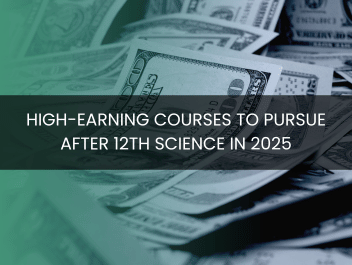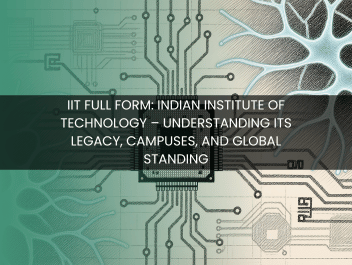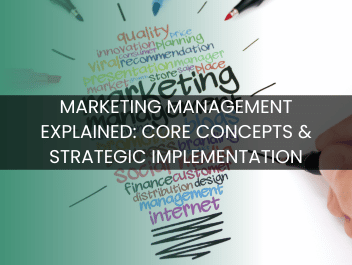
Top Diploma Paths for Students After Completing 12th Science
Choosing a career path after completing 12th grade can be both thrilling and daunting for students, especially for those in the science stream. With numerous diploma courses after 12th tailored to harness diverse interests and skills, students have an array of opportunities to explore. Many of these diploma courses after 12th science provide the groundwork for high-salary careers, making them an attractive option for immediate employment and growth.
Understanding the array of diploma courses after 12th science biology or other specializations is crucial for making informed decisions. Whether it's diploma courses after 12th like pharmacy, biotechnology, or mechanical engineering, each path opens unique doors to dynamic industries. As students strive for excellence, these high salary diploma courses after 12th become a stepping stone to future success.
This comprehensive guide delves into popular diploma after 12th science options, offering insights into fields ranging from medical lab technology to data science. Our aim is to equip students with information on diploma courses after 12th that not only align with their passions but also promise rewarding careers, making their post-12th journey both enlightening and prosperous.
Table of Content
Medical Lab Technology: Behind the Scenes in Healthcare
Medical Lab Technology is a crucial pillar in the healthcare industry, working quietly behind the scenes to provide essential support that aids in the diagnosis and treatment of diseases. These professionals analyze bodily fluids, tissues, and cells, offering vital data for healthcare decisions.
Key Responsibilities:
- Perform complex tests on samples
- Maintain laboratory equipment
- Record and analyze patient data
Table: Common Tests Conducted
|
Test Type |
Description |
|
Blood Tests |
Analyzes blood components |
|
Urine Tests |
Checks for infections or diseases |
|
Biopsy Analysis |
Examines tissue for abnormalities |
Medical Lab Technologists receive hands-on training and develop practical skills essential for the healthcare sector. With career opportunities in hospitals, research labs, and diagnostic centers, this field offers rewarding careers for those aligned with science.
Potential Career Paths:
- Hospital Lab Technician
- Research Assistant
- Diagnostic Center Specialist
This profession is ideal for individuals interested in science and healthcare. With a focus on detail and precision, medical lab technologists play a vital role in patient care and medical research, making it a fulfilling and impactful career choice.
Pharmacy: Gateway to Pharmaceutical Sciences
Pharmacy is a key gateway to pharmaceutical sciences, offering practical skills and career opportunities in the healthcare industry. It is an ideal choice for Science students after completing their 12th Class.
Key Benefits:
- Access to a rewarding career in healthcare.- High demand for professionals with hands-on training.
- Ability to work in diverse environments, such as hospitals and pharmaceutical companies.
Career Paths in Pharmacy:
- Clinical Pharmacist
- Pharmaceutical Researcher
- Quality Control Analyst
- Regulatory Affairs Officer
Pharmacy studies provide a strong foundation in pharmaceutical sciences and open doors to a wide range of career options. With a focus on both theoretical and practical knowledge, it equips students with the skills needed to excel in various roles.
Skills Acquired:
- Drug formulation and development- Patient care and communication
- Inventory management
Pursuing pharmacy not only aligns with science backgrounds but also meets eligibility criteria for numerous diploma courses after 12th science. Students can explore high salary diploma courses in pharmaceutical sciences for a lucrative career ahead.
Radiology: Imaging the Future
Radiology plays a crucial role in modern healthcare. It uses advanced imaging techniques to diagnose and treat diseases. Tools like X-rays, MRI, and CT scans offer detailed insights into the human body. Radiology helps in the early detection of conditions, leading to better treatment outcomes.
Key Imaging Techniques:
- X-rays: Quick and effective for viewing bones.- MRI (Magnetic Resonance Imaging): Detailed images of soft tissues.
- CT Scans (Computed Tomography): Comprehensive images of body sections.
Advantages of Radiology:
- Non-invasive diagnosis.- Early detection of diseases.
- Guides treatment plans.
Radiology also paves the way for innovations like AI integration. This improves accuracy and speeds up diagnosis. Radiologists work closely with other medical professionals, making it an essential field in healthcare.
In conclusion, radiology is not just about imaging. It's about molding the future of medical diagnostics and treatment. As technology evolves, radiology will continue to be a cornerstone in the effort to provide better patient care.
Biotechnology: Bridging Biology and Technology
Biotechnology is a field that seamlessly integrates biology and technology. It applies scientific and engineering principles to process biological entities, leading to groundbreaking innovations. This discipline holds immense importance in areas like healthcare, agriculture, and environmental sustainability.
Key Areas in Biotechnology:
- Healthcare: Biotechnology has revolutionized the healthcare industry by enabling the development of vaccines, creating targeted therapies, and enhancing diagnostic tools. This has opened new doors for treating diseases more effectively.
- Agriculture: In agriculture, biotechnology helps improve crop yield, resistance to pests, and nutritional value. Genetically modified organisms (GMOs) are a testament to this progress, offering solutions to food scarcity.
- Environmental Sustainability: This field aids in creating biofuels, reducing pollution, and developing biodegradable materials. Biotechnology is crucial in addressing environmental challenges through innovative solutions.
Applications of Biotechnology:
|
Sector |
Application |
Impact |
|
Healthcare |
Vaccine Development |
Improved Public Health |
|
Agriculture |
GMOs |
Increased Food Security |
|
Environment |
Biofuels |
Reduced Carbon Footprint |
Biotechnology is a vital bridge between biology and technology, paving the way for a sustainable and innovative future.
Mechanical Engineering: Foundations of Innovation
Mechanical Engineering: Foundations of Innovation is a cornerstone in the field of engineering. This discipline provides the essential frameworks and tools for developing innovative solutions across various industries. Mechanical engineering focuses on designing, analyzing, and manufacturing mechanical systems. These systems are crucial in sectors like automotive, aerospace, energy, and robotics.
Key Aspects of Mechanical Engineering:
- Design and Development: Creating efficient machine
components.
- Thermal Science: Understanding heat and energy applications.
- Materials Science: Selecting materials for strength and durability.
- Automation and Robotics: Innovating through technology.
Mechanical engineers employ hands-on training and practical skills to address complex problems. Their work contributes to advancements in technology and sustainability. Courses in mechanical engineering shape career paths and align with students' career goals. This field offers numerous career opportunities, from automotive to healthcare. As the demand for innovative solutions grows, mechanical engineering remains a rewarding career choice. It enables individuals to pursue lucrative careers while contributing significantly to technological progress.
In conclusion, mechanical engineering serves as the bedrock of many innovative advancements today. As industries continue to evolve, the skills and knowledge acquired in this field are invaluable.
Civil Engineering: Building the World Around Us
Civil engineering is the backbone of modern society. It involves designing, constructing, and maintaining infrastructure like roads, bridges, and buildings. Civil engineers use a mix of practical skills and theoretical knowledge to create safe and efficient spaces.
Why Choose Civil Engineering?
- Wide Range of Opportunities: From urban planning to
environmental engineering, career options are vast.
- Hands-On Training: Civil engineering programs offer practical
experience in real-world projects.
- Lucrative Career: Civil engineers often enjoy high salary prospects
and rewarding careers.
Skills Required
Civil engineers must have strong analytical skills, creativity, and a solid understanding of math and science. Their work is crucial for sustainable city development and disaster resilience.
Career Pathways
- Construction Manager
- Structural Engineer
- Transportation Planner
|
Role |
Primary Function |
|
Construction Manager |
Oversees construction projects and budgets. |
|
Structural Engineer |
Designs and evaluates large structures. |
|
Transportation Planner |
Develops efficient and sustainable transport networks. |
Civil engineering not only shapes our physical world but also enhances our quality of life. Aspiring professionals can achieve their career goals through dedication and a keen interest in improving society.
Chemical Engineering: Innovating for a Sustainable World
Chemical engineering plays a pivotal role in crafting a sustainable future. It combines principles from chemistry, biology, and engineering to develop technologies that minimize environmental impact.
Key Areas of Focus:
- Renewable Energy: Chemical engineers innovate
biofuels and solar energy solutions, reducing reliance on fossil fuels.
- Waste Management: By designing efficient recycling systems, chemical
engineers help decrease landfill waste.
- Water Treatment: Advanced filtration techniques ensure clean and safe
water, vital for global health.
Innovations in Chemical Engineering
|
Innovation Area |
Impact |
|
Renewable Energy |
Reduces carbon footprint |
|
Waste Management |
Supports circular economies |
|
Water Treatment |
Provides access to potable water |
Chemical engineers contribute to a wide range of industries, including pharmaceuticals, food processing, and materials science. They develop practical skills in labs, ensuring the hands-on training needed to translate theory into action.
Emphasizing sustainability aligns with global career goals, offering high salary potentials and rewarding careers. Chemical engineering opens doors to career opportunities that effect positive environmental change while fulfilling personal career aspirations.
Information Technology: Shaping the Digital Age
Information Technology (IT) plays a crucial role in shaping the digital age. It encompasses a wide range of technologies and practices that manage and process information. From web development to cybersecurity, IT transforms how we live and work.
Key Areas of Influence
- Communication: IT has revolutionized personal and
professional communication, making it faster and more efficient.
- Data Management: Systems for data storage and analysis have become
integral for businesses and decision-making processes.
- Automation: IT enables automation, improving efficiency across
industries like manufacturing and healthcare.
Impact on Daily Life
Information Technology enhances our daily life through tools like smartphones, which provide access to a plethora of information at our fingertips. Online platforms offer a variety of services ranging from e-learning to online shopping, making life more convenient.
Bartle’s Table of IT Benefits:
|
Benefit |
Description |
|
Connectivity |
Instant communication worldwide |
|
Efficiency |
Streamlined business processes |
|
Innovation |
Encourages creativity and development |
Embracing IT opens up vast career opportunities, from software development to IT management, making it a promising field for aspiring tech enthusiasts. Information Technology continues to shape our world, driving innovation and changing the digital landscape.
Interior Design: Crafting Space Aesthetics
Interior design is the art and science of enhancing the interior of a space to achieve a healthier and more aesthetically pleasing environment. A skilled designer combines creativity with practical skills to transform ordinary spaces into extraordinary ones. By paying close attention to elements such as color, light, and furniture, interior designers shape the way we experience spaces.
Key Aspects of Interior Design:
- Color: Defines mood and harmony in a room.
- Light: Influences atmosphere and functionality.
- Furniture: Balances utility and style.
Interior design is not just about decoration; it involves strategic planning and the application of design principles to optimize space functionality. Designers work across a wide range of domains, from residential homes to corporate offices and hospitality venues like hotels and cruise ships.
Here's a quick comparison table of elements:
|
Element |
Impact |
|
Color |
Affects mood and perception |
|
Light |
Enhances space ambiance |
|
Furniture |
Addresses comfort and design |
Whether you dream of a minimalist apartment or an opulent office, interior design makes your vision a reality, reflecting both personal style and practical needs.
Fashion Designing: Creativity Meets Industry
Fashion designing is where creativity meets industry. It offers a vibrant career for those with a passion for style and innovation. Fashion designers don't just sketch clothes; they bring ideas to life, setting trends and influencing culture.
Key Aspects of Fashion Designing:
- Creativity and Innovation: Crafting unique styles
and staying ahead of trends.
- Technical Skills: Understanding fabrics, patterns, and sewing
techniques.
- Market Awareness: Knowing consumer preferences and market demands.
Career Opportunities:
Fashion designing opens doors to a wide range of career paths, including:
- Apparel Designer
- Textile Designer
- Fashion Illustrator
- Stylist
The fashion industry values both creative and practical skills. Hands-on training is crucial, bridging the gap between design and production. Fashion designers often work in studios, corporate offices, or set up their own labels.
Conclusion:
Fashion designing is ideal for those with a flair for creativity and a desire to influence style worldwide. This dynamic field combines artistry with practical skills, making it a rewarding career choice. Whether you're sketching in a studio or launching your own collection, the possibilities are endless.Animation and Multimedia: Crafting Visual Stories
Animation and multimedia play a pivotal role in crafting visual stories that captivate audiences. Through a blend of cutting-edge technology and creative storytelling, animation brings characters and worlds to life, enriching the viewer's experience.
Key Elements of Animation and Multimedia:
- Creativity and Innovation: Artists combine vivid imagination with advanced tools to create stunning visuals.
- Wide Range of Applications: Used in films, video games, advertising, educational content, and more.
- Career Opportunities: Offers promising careers in animated films, digital marketing, graphic design, and special effects.
Here's a quick overview of key tools involved:
|
Tool/Software |
Purpose |
|
Adobe After Effects |
Special effects and motion graphics |
|
Autodesk Maya |
3D animation and modeling |
|
Blender |
Open-source 3D creation |
Animation and multimedia professionals often possess practical skills obtained through hands-on training. This creative field offers career aspirations in crafting compelling scenes and narratives. Whether it’s creating lifelike creatures in a blockbuster or designing immersive educational content, animation and multimedia have numerous applications. By merging artistry with technical prowess, professionals in this field are shaping the ways we tell stories and engage with content.
Digital Marketing: Navigating the Online World
In today's digital age, Digital Marketing has become essential. It offers a wide range of career opportunities for those looking to thrive in the online world. From social media management to search engine optimization, Digital Marketing encompasses various skills that are in high demand.
Key Aspects of Digital Marketing:
- Social Media Marketing: Engaging with audiences on platforms like Facebook, Instagram, and Twitter.
- Content Creation: Crafting compelling content that attracts and retains customers.
- Search Engine Optimization (SEO): Improving website visibility on search engines to drive traffic.
- Email Marketing: Building relationships and promoting products through targeted email campaigns.
- Analytics: Using tools to measure and enhance marketing strategies.
Why Choose Digital Marketing?
- Practical Skills: Provides hands-on training that
equips you with practical skills vital for career growth.
- High Demand: Companies continually seek experts to manage their online
presence.
- Lucrative Careers: Offers rewarding careers with competitive salaries.
If you aspire to work in a creative field or seek a lucrative career, Digital Marketing might be your path. It aligns well with various career goals, ensuring a bright future in a rapidly evolving industry.
Business Management: Leadership and Strategy
Business Management plays a crucial role in guiding organizations towards success. Leadership and strategy are fundamental components within this field. Effective leaders are able to inspire, motivate, and drive their teams towards achieving shared goals. They understand the importance of strategic planning and utilize it to navigate the complexities of the business world.
Key Components of Business Management:
- Leadership:
- Inspires team collaboration
- Drives innovation
- Strengthens organizational culture
- Strategy:
- Involves long-term planning
- Focuses on competitive advantage
- Aligns with business objectives
Table: Leadership vs Strategy
|
Aspect |
Leadership |
Strategy |
|
Focus |
People and processes |
Goals and tactics |
|
Time Frame |
Short to medium-term |
Long-term |
|
Approach |
Adaptive and motivating |
Analytical and goal-oriented |
Both leadership and strategy are crucial for any business aspiring to thrive in today's competitive landscape. By harmonizing these elements, organizations can create a robust foundation to achieve their career aspirations and promote rewarding careers across various sectors. Understanding and applying these principles help businesses not only survive but excel in the dynamic market environment.
Hotel Management: The Hospitality Industry Experience
Hotel Management offers a gateway into the vibrant hospitality industry, presenting diverse career opportunities for those with a passion for service and guest satisfaction. This field focuses on practical skills and hands-on training, preparing students for roles in hotel operations, cruise ships, and luxury resorts.
Key Aspects of Hotel Management:
- Wide Range of Career Opportunities: From event
planning to restaurant management, the possibilities are endless.
- High Demand for Skilled Professionals: The hospitality industry
continuously seeks qualified individuals to cater to global travelers.
- Practical Skills Development: Programs often emphasize real-world
experience and customer service excellence.
Benefits of a Career in Hotel Management:
- Lucrative Career Path: Opportunities for advancement and attractive salary packages.
- Global Opportunities: Work in exciting locations around the world.
- Personal Growth: Enhance interpersonal and leadership skills.
Hotel Management is perfect for those aspiring to make an impact in the hospitality industry. Students interested in this field can expect a rewarding and dynamic career journey.
Environmental Science: Guardians of the Earth
Environmental Science stands as a crucial field, addressing the planet's pressing issues. Professionals in this domain, often called the "Guardians of the Earth," work tirelessly to balance human needs with nature's health. They spearhead efforts in pollution control, conservation, and sustainable development.
Key areas of study include:
- Ecosystems and Biodiversity: Understanding the
interconnections between organisms and their environments.
- Climate Change: Analyzing the effects and developing strategies to
mitigate impact.
- Renewable Energy: Promoting sustainable energy sources like solar and
wind.
A degree in Environmental Science opens doors to various career opportunities, such as environmental consultancy, conservation management, and wildlife protection. These roles not only contribute to preserving our planet but also offer a sense of purpose and fulfillment.
Here's a quick overview of career paths within Environmental Science:
|
Career Path |
Role Description |
|
Environmental Consultant |
Provides expertise on managing environmental issues. |
|
Wildlife Biologist |
Studies animal behaviors and ecosystems. |
|
Renewable Energy Specialist |
Focuses on sustainable energy solutions. |
As "Guardians of the Earth," environmental scientists play a pivotal role in ensuring a sustainable future for generations to come. Their work is not just a career but a commitment to preserving our planet.
Data Science: Unlocking Insights from Big Data
Data Science is revolutionizing how industries process and understand vast amounts of information. It combines statistical analysis, machine learning, and domain expertise to extract meaningful insights from big data.
Why Data Science Matters:
- Informed Decision-Making: Businesses can leverage
data science to make informed decisions based on predictive analytics and trend
analysis.
- Enhanced Customer Experience: By understanding consumer behavior
through data, companies can tailor services and products to better suit
customer needs.
- Operational Efficiency: Streamlining processes by analyzing
operational data can lead to significant cost savings and efficiency
improvements.
Key Components of Data Science:
|
Component |
Description |
|
Data Collection |
Gathering raw data from various sources |
|
Data Cleaning |
Processing and organizing data for analysis |
|
Analysis and Modeling |
Identifying patterns and building predictive models |
|
Visualization |
Representing data insights through charts and graphs |
With industries from healthcare to digital marketing leveraging data science, the demand for professionals with these skills continues to grow. As data continues to flow in unprecedented amounts, the role of data scientists in extracting value from this resource becomes increasingly vital.
Arts and Humanities: Exploring Diverse Perspectives
The Arts and Humanities offer a rich tapestry of perspectives and ideas. This field encompasses a wide range of disciplines including literature, history, philosophy, and visual arts. These disciplines help us understand human experiences and cultural expressions across different times and places.
Why Study Arts and Humanities?
- Develop Critical Thinking: Engaging with diverse texts and ideas enhances analytical skills.
- Foster Creativity: Arts encourage innovative thinking and creativity.
- Cultural Awareness: Understanding diverse cultures and histories promotes empathy.
- Communication Skills: Arts and Humanities focus on effective expression and articulation of thoughts.
Career Opportunities:
- Education: Become a teacher or academic researcher.
- Writing and Journalism: Explore careers as a writer or editor.
- Public Relations: Work in media, marketing, or communications.
- Arts Management: Manage galleries, museums, or cultural events.
These fields encourage understanding the human condition and inspire thought-provoking dialogue. By immersing in the Arts and Humanities, you explore the depths of human society and enrich both personal and professional life with meaningful insights.
Looking For Job Satisfaction on the long run?
Please feel free to contact our experts
Call to ask any question
+91-9319336222Monday to Saturday
(9:00 AM to 8:00 PM)Resent Blogs
10 Things to Do During an Interview to Impress Your Future Employer
Learn MoreCrafting Your Personal Narrative: A Guide to Writing About Yourself
Learn MoreTop 10 Essential Interview Questions and Expert Answers for 2025
Learn MoreAce Your Next Interview: Essential Questions and Expert Answers for 2025
Learn MoreFirst-Time Manager Interview: Crucial Questions and Strategies for Success
Learn More150 Essential General Knowledge Questions for Interviews in 2025
Learn MoreMaster the Google Interview: Strategies for Success in 2025
Learn MoreHow Can You Describe Yourself Professionally? 5 Key Strategies You Need to Know
Learn MoreMastering the Art of How to Take Interview: Essential Techniques for Success
Learn More25 Essential HR Interview Questions and Answers PDF You Can't Ignore
Learn More7 Tips to Ace Your HR Screening Round and Land Your Dream Job
Learn More10 Essential Tips for Acing Your Interview Exam
Learn More5 Unique Interview Format Examples to Stand Out in Your Next Interview
Learn More5 Powerful Techniques for a Memorable Interview Introduction
Learn MoreMaster Your Next Interview with These Top Interview Preparation Apps
Learn MoreMastering the Art: Top Interview Questions for 12th Class Students
Learn More7 Must-Know Interview Questions for Freshers to Ace Your Job Hunt
Learn MoreMastering Interview Questions for HR Position with Answers: Strategies for Success
Learn More12 Essential Interview Questions for Recruiter Position You Should Prepare For
Learn More10 Must-Know Interview Questions UK Employers Love to Ask
Learn More10 Creative Interview Writing Examples to Spark Your Imagination
Learn More15 Essential Managerial Interview Questions for Freshers to Prepare
Learn More15 Unique Marketing Interview Questions You Haven't Prepared For
Learn More7 Key Strategies for a Successful Mock Interview Session
Learn MoreThe Ultimate Guide to Model Interview Questions: What You Need to Know
Learn More5 My Self Question Exercises to Unlock Your True Potential
Learn More10 Normal Questions That Can Spark Deep Conversations
Learn More15 Essential Personal Interview Questions for Freshers to Ace Your Next Job
Learn More10 Essential Phone Interview Questions You Can’t Afford to Ignore
Learn More15 Essential Sales Interview Questions and Answers for Freshers
Learn More7 Key Situational Interview Questions Every Employer Should Ask
Learn More15 Essential Software Developer HR Interview Questions You Need to Prepare For
Learn MoreMastering the Technical Interview: Essential Questions and Answers
Learn MoreTop Strategies for Responding to Tell Me About Yourself in a Student Interview
Learn MoreTop 10 Interview Questions and Expert Answers
Learn MoreMastering the Art of Interviewing: 50 Tough Questions and Smart Answers
Learn MoreHow to Ace Your Next Mock Interview: Tips and Strategies for Success
Learn MoreYour Ultimate Guide: 60 Insightful Questions to Ask Interviewers
Learn MoreCrafting the Perfect Response to Why Do You Want This Job?
Learn MoreUnique Ways to Tackle the Question Why Should We Hire You?
Learn MoreWhy Should We Hire You? - Top 10 Answers for Customer Service Roles
Learn MoreMastering the Art of Discussing Work Experience in Interviews
Learn MoreMastering Your Sales Interview: 50 Essential Questions and Answers
Learn MoreCareer Paths After 12th Commerce: Your Future Starts Here
Learn MoreExplore One-Year Courses After 12th for Non-Medical Students
Learn MoreQuick Career Paths: 2-Year Degree Courses After 12th for Fast-Track Success
Learn MoreComprehensive Guide: Courses After 12th Commerce
Learn MoreTop 10 Lucrative Courses to Consider After Completing Engineering
Learn MoreAdvancing Your Career: Top Choices After B.Tech in 2025
Learn MoreExplore Your Future: After CET Exam Which Course is Best for Aspiring Professionals?
Learn More5 Reasons Why After Inter CEC, Choosing the Right Course is Crucial
Learn MoreAfter PUC Which Course is Best for Aspiring Engineers? Explore Your Options!
Learn MoreUnlocking Your Future: Best Arts and Science Courses After 12th for 2025
Learn MoreWhy a Bachelor Degree in Commerce is Your Pathway to Success
Learn More15 Best Career Courses to Boost Your Earning Potential in 2025
Learn MoreEmerging Career Fields for 2025: What You Need to Know
Learn MoreExploring In-Demand Career Paths After 12th: Science, Arts, Commerce
Learn More15 Lucrative Science Careers You Should Consider
Learn MoreHigh-Paying Career Paths for Girls After 12th Commerce
Learn MoreTop 10 High Salary Career Courses After 12th Biology
Learn MoreTop 10 High-Paying BSc Specializations for 2025
Learn MoreExploring the Future: Innovative Career Paths for B.Tech Graduates in 2025
Learn MoreComprehensive Guide to B.Tech Specializations for MPC Graduates
Learn MoreUnlocking Your Potential: The Ultimate B Tech Job List for 2025
Learn MoreB.Tech Salary Insights: How Much Can You Earn Per Month?
Learn MoreEssential Business Courses After 12th: Your Guide to a Successful Career
Learn MoreHow Commerce Students Can Transition to BSc IT
Learn MoreExploring Career Paths After 12th: Your Guide to Success in 2025
Learn MoreCertainly! Here are 10 additional title ideas inspired by the list you provided
Learn MoreExploring Career Paths After Engineering: Your Guide to the Future
Learn MoreThe Ultimate Guide to Career Options Post-High School Graduation
Learn MoreDiscover the Top 10 Chemistry Courses After 12th That Lead to High-Paying Jobs
Learn MoreExplore the Best Diploma and Certificate Programs After 12th Commerce
Learn MoreCareer Paths for Computer Science Graduates: Top Opportunities to Explore
Learn MoreExplore Top Courses After 12th: Your Path in Science, Arts, or Commerce
Learn MoreTop 10 Courses After 12th Commerce for a Successful Career
Learn MoreTop Paying Professional Courses After 12th for Commerce Students
Learn MoreEmerging Career Paths After 12th Commerce Without Maths
Learn MoreExploring Career Paths After 12th Science: A Complete Guide
Learn MoreComprehensive Guide to Courses and Career Paths after 12th Grade
Learn MoreEmerging Career Paths in India: What to Expect in 2025
Learn MoreTop Diploma Paths for Students After Completing 12th Science
Learn MoreTop 15 Easiest High-Paying Jobs to Pursue in India by 2025
Learn MoreNavigating Your Future: Easy Degree Options After 12th
Learn MoreExploring Top Engineering Branches After 12th: A Comprehensive Guide
Learn MoreExploring Advanced Studies: Top Entrance Exams for Engineering Graduates
Learn MoreMBA Salary Insights: Top Packages and Compensation Trends in India
Learn MoreTop 15 Lucrative Careers in India for 2025
Learn MoreTop 10 High-Paying Jobs for Commerce Graduates Without Maths
Learn MoreTop 10 High Salary Courses After 12th PCB for Future Success
Learn MoreHigh-Earning Courses to Pursue After 12th Science in 2025
Learn MoreHigh Paying Career Paths for BiPC Students: Top 10 Courses to Consider
Learn MoreExploring High-Paying Engineering Degrees for the Future
Learn MoreExploring Integrated Courses After 12th: A Comprehensive Guide for Students
Learn MoreExploring Career Prospects: What Can You Do with a BBA Degree?
Learn MoreTop 15 In-Demand Professional Courses for Commerce Graduates in 2025
Learn MoreExploring Lucrative Job Paths for BBA Graduates in 2025
Learn MoreMBA Full Form Explained: Master of Business Administration & Its Strategic Career Value
Learn MoreBBA Full Form: The Definitive Guide to BBA Degrees, Admissions, & Career Paths
Learn MoreBCA Full Form Explained: Your Complete Guide to the Degree, Admission & Career Scope
Learn MoreIAS Full Form: Indian Administrative Service Explained & Its Pivotal Role
Learn MoreMBBS Full Form: Unraveling the Meaning Behind a Doctors Qualification
Learn MoreUPSC Full Form: Union Public Service Commission and Its Vital Role
Learn MoreBSc Full Form: Bachelor of Science & What It Means for Your Future
Learn MoreITI Full Form: What Exactly is Industrial Training Institute?
Learn MoreLLB Full Form: Your Ultimate Guide to Bachelor of Laws, Eligibility & Career Scope
Learn MoreIs There a True Computer Full Form? Unpacking the Popular Acronym
Learn MoreB.Tech Full Form Unpacked: Meaning, Scope, and Why It Matters for Your Career
Learn MoreIIT Full Form: Unveiling the Indian Institute of Technology and Its Legacy
Learn MoreMCA Full Form Revealed: Master of Computer Applications & Its Significance
Learn MoreIIT Full Form: Indian Institute of Technology – Understanding Its Legacy, Campuses, and Global Standing
Learn MoreYour Complete Guide to Becoming a Veterinarian: Education, Specialties & Career Paths
Learn MoreBSc Degree: Your Complete Guide to Courses, Careers, and Future Prospects
Learn MoreB.Com Full Form Unveiled: What Bachelor of Commerce Truly Means
Learn MoreBAMS Full Form: Bachelor of Ayurvedic Medicine and Surgery — Unpacking Its Meaning & Career Scope
Learn MoreWhat is a Polytechnic? Your Complete Guide to Courses, Admissions & Career Paths
Learn MoreSSC GD Constable Exam News 2025-26: Latest Updates on Vacancies, Dates & Application
Learn MoreHow to Choose the Best Veterinarian for Your Pet: A Comprehensive Guide
Learn MoreAir Hostess 2026: Your Complete Roadmap to Landing the Dream Job
Learn MoreUnlocking Your Future: The Ultimate BSc Degree Guide (Courses, Careers & Admissions)
Learn MoreCMA Full Form: Certified Management Accountant (Global Standard Explained)
Learn MoreNACH Full Form Explained: What It Is & Why It Matters in Banking
Learn MoreThe Modern Anthropologist: Understanding Their Role, Impact, and Diverse Specializations
Learn MoreBBA: Your Ultimate Guide to Course Details, Admission, Fees, and Future Career Prospects
Learn MoreBDS Full Form Unpacked: Your Essential Guide to Dentistry Courses, Admissions & Career Scope
Learn MoreBHMS Full Form Revealed: Your Complete Guide to Bachelor of Homeopathic Medicine & Surgery
Learn MoreB.Tech Admissions 2026: Your Complete Guide to Courses & Eligibility
Learn MoreCFA Full Form: Understanding the Chartered Financial Analyst Designation
Learn MoreMerchant Navy Salary in India: Unveiling Pay Scales by Rank & Experience
Learn MoreTS EAMCET 2026: Official Notification, Exam Dates & Application Guide
Learn MoreVITEEE 2026: Full Guide to Application, Dates, Syllabus & Preparation
Learn MoreBMS Full Form: Unveiling Bachelor of Management Studies & What it Entails
Learn MoreB.Sc. Computer Science: Your Complete Guide to Courses, Careers & Eligibility
Learn MoreComputer Science Explained: From Basics to Advanced Concepts
Learn MoreWorlds Most Difficult Exams: A Definitive Ranking for 2025
Learn MoreUnion Public Service Commission (UPSC): All You Need to Know
Learn MoreBE Full Form Explained: What Bachelor of Engineering Means & Your Career Path
Learn MoreDMIT Full Form Revealed: Unpacking the Dermatoglyphic Multiple Intelligence Test
Learn MoreIndias Most Difficult Exams: The Ultimate Ranking for 2025
Learn MoreCLAT Full Form: Unveiling the Common Law Admission Test + Key Details
Learn MoreHighest Paying Jobs in India: Unveiling the Top 25 Roles & Their Lucrative Salaries
Learn MoreMA Full Form: Unpacking the Master of Arts Degree & What It Entails
Learn MoreMarketing Management Explained: Core Concepts & Strategic Implementation
Learn MoreBCA Course Subjects: A Comprehensive Guide to Your IT Degree Curriculum
Learn MoreCAT Exam Date 2026: When to Apply & Exam Schedule Revealed
Learn MoreCDS Full Form: Unveiling Combined Defence Services & Your Path to Commission
Learn MoreLab Technician Career Path: Duties, Skills, and Salary Guide
Learn MoreYour Complete Guide to Becoming a Successful Software Developer
Learn MoreAir Hostess Course Guide: Everything You Need to Know for Your Aviation Career
Learn MoreIntroduction: Navigating Your Path to Medical Excellence in India
Learn MoreTop Commerce Courses After 12th: Unlock Lucrative Career Paths
Learn MoreTop Industrial Training Institutes: Your Guide to Skilled Trades
Learn MoreUnderstanding Psychometric Tests: Your Definitive Guide & Free Examples
Learn MoreWhat Does a Surgeon Do? A Comprehensive Guide to the Profession
Learn MoreUG Explained: Your Ultimate Guide to Undergraduate Degrees & Admissions
Learn More10th Pass Govt Jobs 2026: Your Complete Guide to Apply & Secure Your Career
Learn MoreATMA: Your Complete Guide to the Management Admissions Test
Learn MoreBHMS Course Guide: Eligibility, Syllabus, Career Prospects & Top Colleges
Learn MoreUnlock Your Future: The Definitive Guide to Career Counselling
Learn MoreWhat Does a Clinical Psychologist Do? Your Comprehensive Guide
Learn MoreM.Tech Full Form: Master of Technology Explained (Meaning, Scope & Benefits)
Learn MoreRadiology Courses Explained: From Certificates to Masters Degrees
Learn MoreBSc Courses Explained: Full Guide to Specializations, Admissions & Career Paths
Learn MoreBSc Nursing Course: Admission Guide, Eligibility, Syllabus & Career Paths
Learn MoreBA LLB Full Form Explained: Unpacking Bachelor of Arts & Bachelor of Laws
Learn MoreTop BBA Colleges in India: Unveiling the Elite Institutions for Your Management Degree
Learn MoreUPSC CDS Exam Date 2026: Complete Schedule & Notification Details
Learn MoreTop Career-Focused Courses After 12th Grade: Unlock Your Future
Learn MoreExplore the World of Humanities Subjects: A Comprehensive Guide
Learn MoreIPU CET 2026: Complete Guide to Applications, Syllabus & Cutoffs
Learn MoreISI Full Form: Unveiling the Meaning & Importance of the Indian Standards Institute
Learn MoreJEE Advanced 2026 Exam Date: When Will the Exam Be Held?
Learn MoreJEE Main 2026 Result Date: When to Expect Session 1 & 2 Results
Learn MoreMCA Course Guide: Everything You Need to Know About Eligibility, Fees, and Admissions
Learn MoreMultimedia Explained: Your Complete Guide to Definition, Examples, and Impact
Learn MoreThe Ultimate Paramedical Courses List: Find Your Perfect Career Path
Learn MorePharm.D. Program: Your Complete Guide to Curriculum, Admissions & Outcomes
Learn MoreThe Ultimate Guide to Top IIT Colleges in India: Ranking, Admissions, and Courses
Learn MoreATC Full Form: Unpacking Air Traffic Control, Anatomy & More
Learn MoreB.Ed. Course Duration in India: Everything Aspiring Teachers Need to Know
Learn MoreB.Sc Psychology Degree: Your Guide to Admissions, Curriculum & Career Paths
Learn MoreB.Tech Computer Science: Your Complete Guide to Admission, Syllabus & Career Prospects
Learn MoreBDS Course Duration: How Long is Bachelor of Dental Surgery?
Learn MoreBFA Full Form Explained: What is a Bachelor of Fine Arts & Why it Matters
Learn MoreBiology Explained: What It Is, Its Core Concepts & Why It Matters
Learn MoreBPT Course: Your Complete Guide to Bachelor of Physiotherapy Admissions
Learn MoreBSc Nursing Full Form: What it Means and Why it Matters
Learn MoreThe Science Complete Guide: Best Courses & Career Paths Revealed
Learn MoreMaster Your Future: Your Complete Guide to 2026 Government Exams & How to Prepare
Learn MoreMPhil Explained: Your Complete Guide to the Master of Philosophy
Learn MoreBecome a Certified Stenographer: Your Complete Course Guide
Learn MoreTANCET 2026: Complete Exam Guide - Dates, Syllabus, and Preparation Tips
Learn MoreUpcoming Government Exams 2026: Full Schedule, Eligibility & Application Dates
Learn MoreWhat is CA? The Complete Guide to Chartered Accountancy and Your Career Path
Learn MoreAgnipath Scheme Explained: Eligibility, Benefits, Salary & Career Path
Learn MoreAFCAT 2026: Your Complete Guide to the Air Force Common Admission Test
Learn MoreConnet Us
Unlock Your Dream Career Potential - Get Expert Advice From Our Counselling Experts























































































































_Thumbnail_.png )
_Thumbnail_.png )














_All_You_Need_to_Know_Thumbnail_.png )
























_Thumbnail_.png )



































